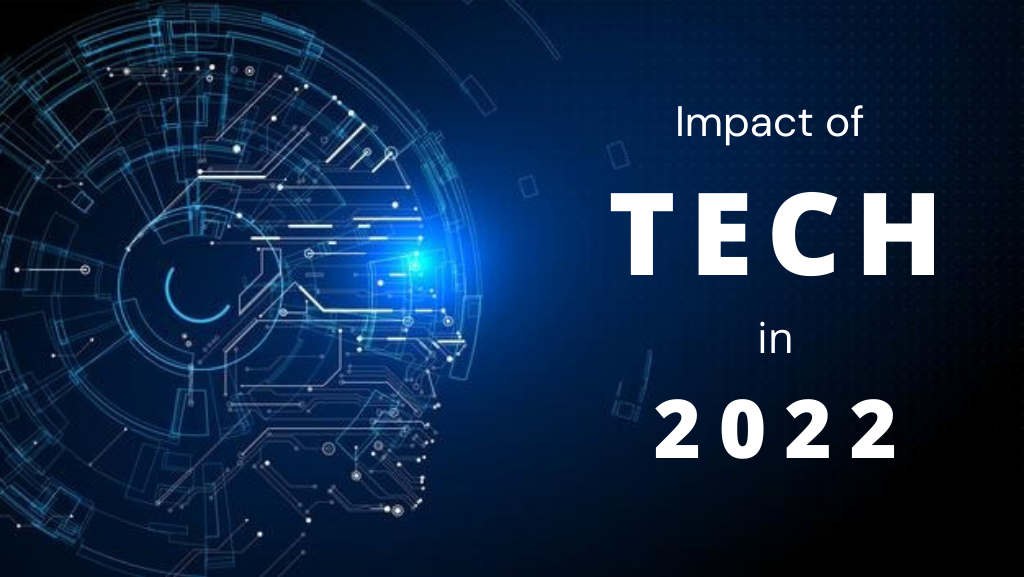Now is the time to upgrade our technologies, and in the year 2022, AI, ML, 5G, and Cloud Computing will be the most important technologies to emerge. The COVID-19 pandemic will continue to have a wide-ranging influence on our lives in 2022. As a result, the digitalization and virtualization of business and society will continue to increase.
As we enter the new year, however, the demand for sustainability, ever-increasing data volumes, and faster computation and network speeds will reclaim their positions as the most essential drivers of digital transformation.
IEEE has announced the conclusions of a new study of global technology executives from the United States, the United Kingdom, China, India, and Brazil titled “The Impact of Technology in 2022 and Beyond an IEEE Global Study.”
The study, which included 350 CTOs, CIOs, and IT directors, looks at the most important technologies in 2022, as well as the industries that will be most impacted by technology in the coming year and technology trends over the next decade.
Because of the global pandemic, technology executives surveyed said they will accelerate the adoption of cloud computing (60%), AI and machine learning (51%), and 5G (46%), among other technologies, in 2021. Not surprisingly, 95% agreed that AI will drive the majority of innovation in nearly every industry sector over the next five years, with 66 percent strongly agreeing.
The most important technologies, innovation, sustainability, and prospects
5G technology will benefit in many ways in the coming year.
1. Telemedicine, includes remote surgery and the transfer of medical records (24% )
2. Education and learning via the internet (20%)
3. Day-to-day personal and professional communications (15%)
4. Streaming of entertainment, sports, and live events (14%)
5. Production and assembly (13%)
6. Transportation and traffic management (7%)
7. Energy efficiency and carbon footprint reduction (5%)
8. Agriculture and farming (2%)
Manufacturing (25%) was selected by technology executives as the industry sector most influenced by technology in 2022, followed by financial services (19%), healthcare (16%), and energy (16%).
In comparison to the beginning of 2021, 92% of respondents agree, with 60% strongly agreeing, that deploying smart building technology for sustainability, decarbonization, and energy savings has become a key priority for their firm.
COVID-19, Workplace Technology, and Human Resource Collaboration
As the impact of COVID-19 varies globally and hybrid work continues, technology leaders nearly unanimously agree (97% agree, with 69% strongly agreeing) that their team is working more closely than ever with Human Resources leaders to implement workplace technologies. Apps for office check-in, space usage data and analytics, COVID and health protocols, employee productivity, engagement, and mental health.
Maintaining strong cybersecurity for a hybrid workforce of remote and in-office workers is viewed as challenging by 83% of those polled (40% very, 43% somewhat), while managing return-to-office health and safety protocols, software, apps, and data are viewed as challenging by 73% of those polled (29% very, 44% somewhat).
Moreover, 68% of technology leaders expect it will be difficult to determine what technologies will be required for their organization in the post-pandemic future (29% very, 39% somewhat). Recruiting engineers and filling available tech roles in the coming year is likewise viewed as difficult by 73% of respondents.
Over the next decade, Robots will become more prevalent
In conclusion, 81% believe that in the next five years, robots will improve one-quarter of what they do. Also, 77% believe that in the same time frame, robots will be implemented across their company to improve practically every business function, from sales and human resources to marketing and IT.
A majority of respondents (78%) believe that robots will improve half or more of what they do in the next ten years. According to the poll, the deployments of robots that will most help humans include manufacturing and assembly (33%), hospital and patient care (26%), and earth and space exploration (13% ).
Technology development and deployment, and other cyber and physical security
Cybersecurity concerns are prevalent in the mobile and hybrid workforce, especially employees who use their own devices (39%) and cloud vulnerability (35%).
The great majority of those polled (92%) say that their firm is more prepared to respond to a potentially catastrophic disruption, such as a data breach or natural disaster than it was a year ago. 65% of those polled strongly think that COVID-19 has expedited their preparation.
Check out globaltechnologyupdate.com for the most recent news and tech news updates. Follow us on Facebook, Instagram, LinkedIn, and Twitter.




